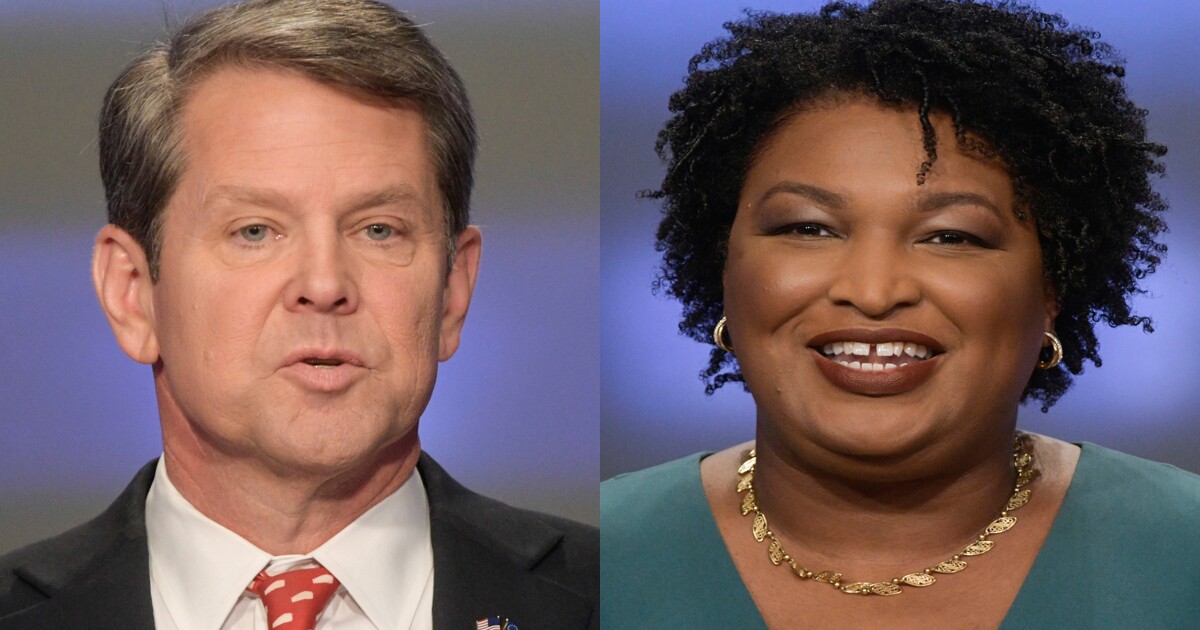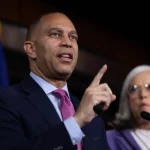

As the country inches closer toward Election Day, voters are homing in on specific issues that may decide the fate of Congress and several state governments in November.
The Washington Examiner is tracking which issues are on the top of voters’ minds as they prepare to head to the polls, particularly in key battleground states that could bring a shift in power to the federal government. Specifically, we’re tracking how voters are researching our top five issues, including abortion, crime, education, inflation, and taxes, and how these interests fluctuate as we get closer to Election Day.
MIDTERMS 2022: TRACKING THE ISSUES THAT MATTER TO VOTERS AHEAD OF ELECTION DAY
Below, you can track the interest of each of our key issues on a rolling 30-day basis in the battleground state of Georgia. The Washington Examiner will be updating this page as interests and voting concerns change.
Key races we’re watching in the state
Georgia has emerged as one of the most competitive battleground states in the midterm elections, with voters set to cast their ballots for both the Senate and governor’s races.
Although Georgia has historically benefited the Republican Party as a GOP stronghold, the state has become a highly watched swing state — particularly after the 2020 elections, in which President Joe Biden won the state and Democrats clinched both Senate seats, securing majorities in both chambers of Congress. Now, Democrats are seeking to hold on to their gains while Republicans strategize how to reclaim the once-reliably red state.
Republicans are particularly eyeing the Senate race between incumbent Sen. Raphael Warnock (D) and Trump-backed challenger Herschel Walker. The race has been deemed a toss-up, and polls have alternated back and forth between which candidate is leading the other.
Further down the ballot is the highly watched governor’s race between Gov. Brian Kemp (R) and Stacey Abrams, a rematch from 2018, when Abrams lost to the Republican incumbent. That race has taken center stage during the midterm cycle as the state considers key legislation on abortion, inflation, and more.
Abortion
Abortion emerged as a top voter issue nationwide over the summer and remained a top priority among Georgia voters as of Sept. 5, according to internet searches recorded and analyzed by Google Trends.
It’s not surprising that abortion emerged as a top issue for voters, as Georgia was one of a handful of states to enact new abortion laws after the Supreme Court overturned Roe v. Wade in June. The procedure is now illegal in Georgia after a heartbeat is detected, with some exceptions in the case of rape, incest, or threat to the mother’s life.
Georgia Democrats have leaned heavily on abortion throughout the midterm cycle, hoping to use the issue to motivate voter turnout. Abrams has especially focused her campaign on promoting access to abortion, whereas her opponent, Kemp, has championed anti-abortion policies.
Education
Education also emerged as a top concern among voters over the last month, spiking in mid-August around the time the new school year began.
Education has long been a priority among lawmakers in Georgia, and the state boasts the highest average teacher pay in the South. That issue has especially been highlighted in recent months after Kemp enacted a $5,000 pay raise for state employees, including teachers.
However, Abrams argued the raise wasn’t enough and proposed further increases to recruit and retain more teachers in the state.
Inflation
Inflation appeared to be at the top of voters’ minds at the beginning of August but later tapered off as the month went on. Internet searches on the topic wavered by mid-August, with two spikes in the last week of the month.
Republicans have long focused on inflation as a key voter concern in the midterm election cycle, pointing to soaring inflation rates under Biden. However, inflation has become less of a concern after the passage of Biden’s Inflation Reduction Act, offering Democrats relief and posing challenges to Republicans as they formulate new strategies.
Taxes
Taxes remained a comparatively low-researched topic among Georgia voters throughout the month of August, spiking only once on Aug. 25 — likely coinciding with the announcement of President Joe Biden’s student loan forgiveness plan.
However, the issue of taxes has been a high-profile topic in the Georgia governor’s race, with Kemp seeking to position himself as better prepared to handle the economy than Abrams. As a result, the Republican incumbent has tied Abrams to several of Biden’s more unpopular policies in the state, claiming she wants to increase taxes for Georgians.
However, Abrams fired back with criticisms on recent tax breaks signed by Kemp, arguing the incumbent has only approved measures benefiting wealthy taxpayers.
Crime
Internet searches about crime were particularly low among Georgia voters over the last month despite the issue emerging as a key one in the governor’s race.
CLICK HERE TO READ MORE FROM THE WASHINGTON EXAMINER
Republicans have sought to paint Democrats as being too “soft on crime” throughout the midterm cycle, and the party may have an advantage because they are typically considered to be better at handling crime, according to an April Washington Post-ABC News poll. That sentiment has shifted in previous years; voters used to consider both parties equal on the matter.
However, Abrams has sought to flip the script in the governor’s race, focusing her talking points on stricter gun laws and pointing to rising crime rates as a result of Kemp’s leadership.






